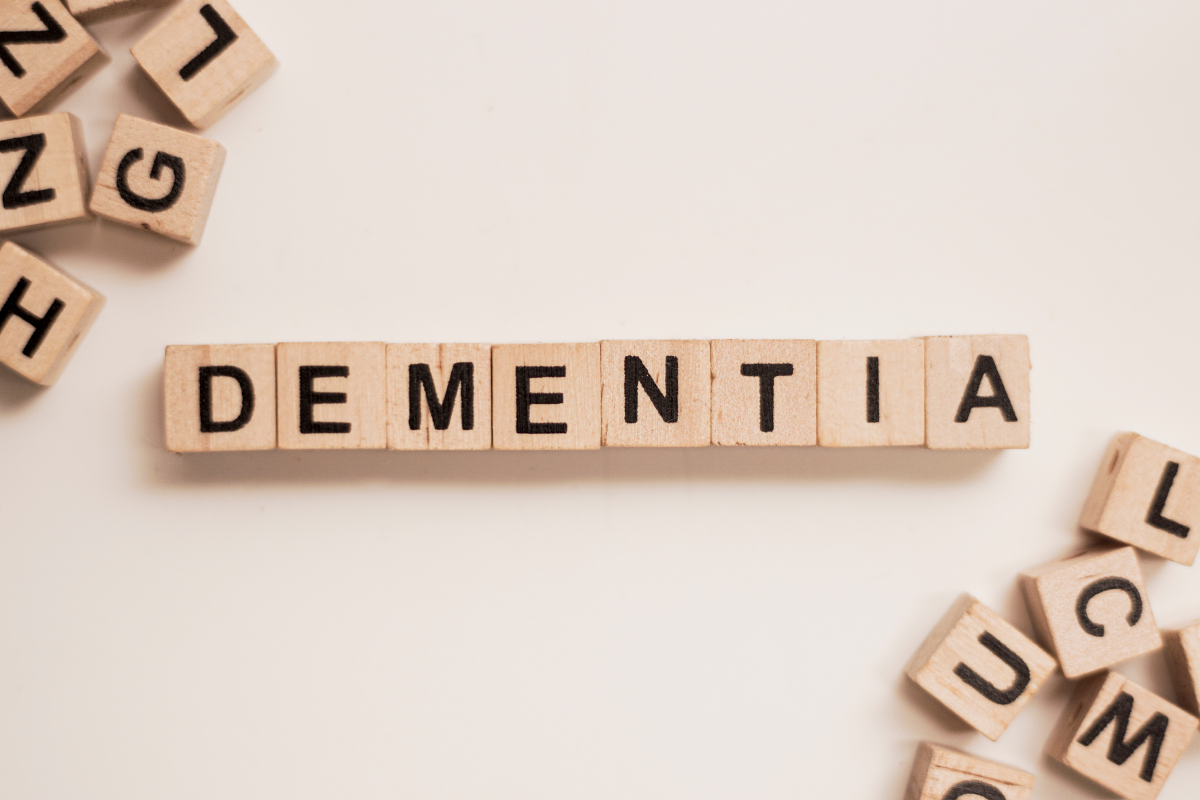If you have a loved one who is living with dementia, you may have started to notice some changes in their behaviour. Seeing someone that you love display behaviours that you don’t recognise or understand can be distressing and upsetting, and it can be particularly difficult to explain these changes to younger family members – children are always full of questions aren’t they! But, being armed with as much knowledge as you can about the effects of dementia will make the situation much easier for everyone.
Care In Kent takes a look at some of the most common behaviours in those who have been diagnosed with dementia: restlessness and agitation, so that we can all better understand the causes, and find ways to support a loved one who is experiencing these symptoms.

Physical changes associated with Dementia
Restlessness and agitation are symptoms of the physical changes that occur in the brain of someone living with dementia and can cause the person to feel irritable, fidget or make repetitive movements, fixate on certain tasks, or try to leave their home or safe space. Sometimes these behaviours can be triggered by things such as an increase in noise or a change in routine or environment, because of certain medications, or because of anxiety or depression.
Because of the nature of the illness, it can be hard to pinpoint why your loved one is feeling agitated or restless, but there are some techniques that we can use to calm someone who is experiencing these symptoms.
- Offer food or drink. Dementia can make it difficult for someone who is living with the condition to recognise that they are hungry or thirsty, so ensure that food and drinks are offered at regular intervals.
- Ask if they need to use the toilet and support them if they need assistance. You might have to look for non-verbal signals such as fidgeting or holding their stomach or crotch, especially if your loved one is in the later stages of dementia.
- Engage your loved one in purposeful activities such as walking, crafts or gardening. This can be a useful technique if your loved one is expressing an interest in leaving the house, and for making sure that they are getting plenty of fresh air and exercise, which can encourage healthy sleep patterns.
- Offer something comforting to hold, such as a blanket or soft toy. There are toy ‘pets’ on the market that research shows can have a calming effect on those living with dementia, and can aid with restlessness and provide comfort to the patient.
For those living with dementia, a great deal of frustration can come from not knowing or understanding why they feel a sense of restlessness and agitation. A common side-effect of this is pacing, and it’s important to allow the person to get up and walk about, so long as it is safe to do so.

Support them if necessary and ensure that their home has been safety-proofed to prevent falls and accidents. It could be that your loved one has gotten up to go to the toilet or to get something and has forgotten what they were going to do, so try and establish if they have an unmet need that you can help them with, or if they simply feel the need to move around.
Preventing problems
One of the biggest worries for families of those living with dementia is that they may want to leave their home; something that’s common in patients who are feeling restless or agitated due to their condition. This feeling of wanting to leave can be caused by confusion about where they are in time (thinking it’s time to leave for work or pick the kids up from school, for example), or if they have remembered somewhere that they used to live or visit regularly. Some people with dementia may experience what is known as ‘sundowning’, which is an overwhelming sense of not being in the right place and wanting to go home – even if they’re already there – and is typically worse around dusk.
Keeping loved ones safe
Of course, a person who is living with dementia is extremely unlikely to be aware of the risks of going out alone, so it’s important to put some plans in place to help protect your loved one if they are prone to trying to leave the house, such as:
- Make sure that coats and bags are put away in cupboards rather than being left near the front door. Seeing them might make someone with dementia think that they were about to go out.
- A curtain over the front door can be used to conceal it from sight during the evening, or at times when they normally try to leave the home. Out of sight can be out of mind for people living with dementia.
- You can reduce the levels of agitation your loved one is experiencing by speaking to them about where they want to go and asking them questions about their memories of places that are special to them.
- Make sure your loved one has plenty of opportunities to leave their home safely with family members or friends
In extreme cases, it might be necessary to keep windows and doors locked, although this can be an issue when it comes to fire safety, and can also cause distress to a loved one who might become upset if they try to open them. There is also assistive technology to consider, such as door alarms and tracking devices that can give you a little more peace of mind.
By understanding that restlessness and agitation in dementia patients aren’t uncommon and that these behaviours are symptoms of the illness rather than due to a patient’s personal feelings towards you or other family members, it’s easier to show our support and care and to put the appropriate safety measures in place.
If you are caring for a loved one who is living with dementia, and are looking for support, Care In Kent can provide a range of at-home services, from helping with personal care to complete respite care or specilised dementia care. Get in touch with our dedicated team today to see how we can help.


